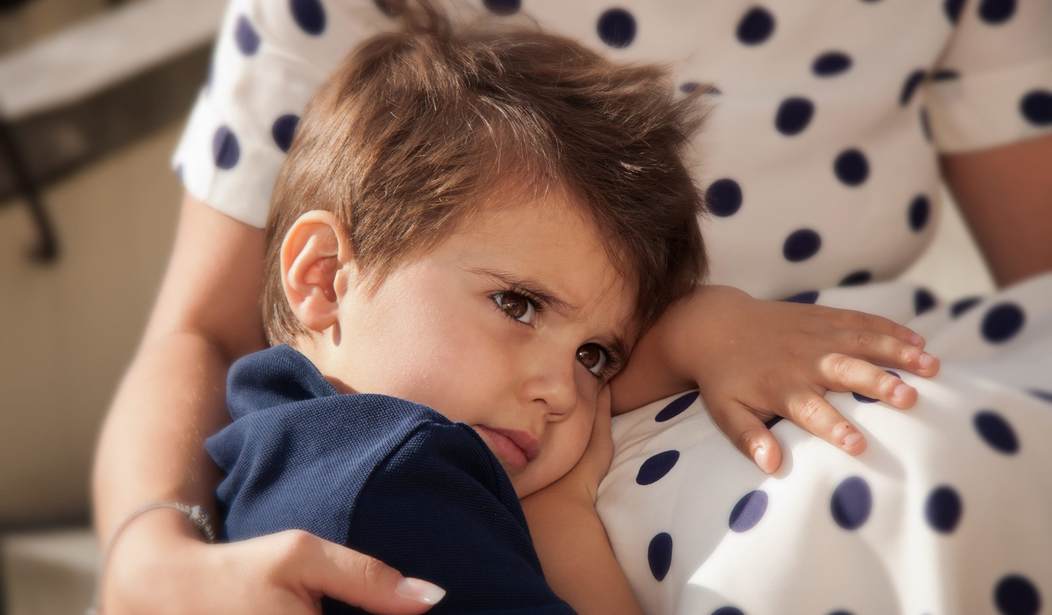Recently I was reading a book with a chapter on worry. The author began describing how many people can take a simple concern and blow it out of proportion in their minds. For instance, “I hope my husband makes it to work safely this morning” can spiral into “If he doesn’t make it to work, I will not be able to pay our bills and we would probably lose the house; my children will be homeless and destitute, begging with me on the street corner.” I read the page several times, hoping there was something I missed in this anxiety-ridden slippery slope. I called my mom and asked her if she ever had thoughts that ran away like that. My mom said she doesn’t worry like that, but named some friends who are held hostage to these fear traps.
Anxiety has become a widespread concern for both adults and children. One researcher found that 25.1% of teens (ages 13-18) will struggle with anxiety, and almost 6% of teens experience a “severe” anxiety disorder. These disorders “are the most common psychiatric illness affecting children and adults,” with an estimated 40 million American adults suffering from anxiety.” They often lead to physical problems listed here.
When I think about what I want to teach my son, one of my top priorities is to teach him not to live in fear, just like my parents taught me. Here are some thing parents can do to raise kids who are not anxious.
1. Research
There are many causes for alarm in our country today, but some fears can be relieved with simple research. My husband was planning a Caribbean missions trip for the teens at our church when news broke of the Zika virus. This news prompted us to scour the internet and consult our physician for information. We learned that the CDC only recommended women not go to the Caribbean if they were pregnant or planned to be in the next three months. There was no need to cancel, because our team was comprised of mostly high school students. We were eager to share our findings with the parents of our team members. Not one team member was affected by Zika and we were so glad that solid research kept us from cancelling what was a life-impacting trip for so many of our students. Obtaining facts about the disease helped us to be confident of our decision to continue the trip.
2. Be Prepared
If your mind involuntarily goes to the catastrophic, start planning! Get life insurance, create emergency plans, purchase a fire safe, take a self-defense class and talk about ways your family can stay safe—whatever it takes to make you feel prepared. BUT, be careful not to be so consumed with the emergency planning that you lose focus and give your kids something new to fear. Instead, have frequent conversations about the steps you have taken to keep your family safe. Preparedness can be the most helpful tool in fighting the downward spiral of worry, and a plan will help your kids to focus on what you will do to stay safe instead of the dangers that could be.
3. Focus on Today
As a lay counselor, one the biggest principles I teach to my counselees is to focus on what is true right now. Take a step back and re-focus your eyes on reality when fear threatens to consume you. A friend would never let her family go on a cruise because of her concern the boat would catch fire. Fear eliminated an entire vacation option because of an unrealistic “what if.” You cannot live your life in a set of unrealistic worst-case scenarios. Prepare yourself for the worst and then focus on what is actually happening today. When you see your kids starting to think things through in this way, talk to them about reality versus imagination. A healthy dose of what is real today can prevent many fears of what could happen tomorrow.
4. Look for the Positive
As I have been writing this article, I saw anxiety strike the heart of my toddler when a storm rolled through our town. I took him to the window and we watched the sky darken. We ran to the back of the house to see the sky there and compared the colors. I told him about how the farmers needed that rain so more yummy corn would grow. We talked about how his aunt and his mommy loved to watch the sky change colors when we were little. We sang a round or two of Bohemian Rhapsody’s “thunder bolts and lightning” verse and he laughed hysterically at my falsetto rendition of “Galileo! Galileo Figaro—magnificooooooo.” The next day it stormed again and I watched my son take his dad’s hand and lead him to the window and point out the cool colors in the sky. What started with a scared kiddo was replaced with fun memory sharing, a science lesson, and a classic Queen song—far better than panic!
5. Fake it
When I was a summer camp counselor I QUICKLY learned that if the counselor was not worried, the campers would not be worried, either. When I had ten second-graders screaming because a spider was in our cabin, I could settle the room by being calm myself. I am not a spider fan, but if I had panicked, so would my campers. When you are calm, kids will be calm. Faking that you are just fine—even in the presence of a giant spider—can help alleviate worry in your child.
As parents, you can teach your kids fear or confidence. The choice is up to you.







Join the conversation as a VIP Member